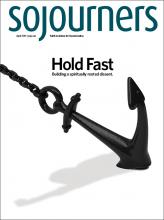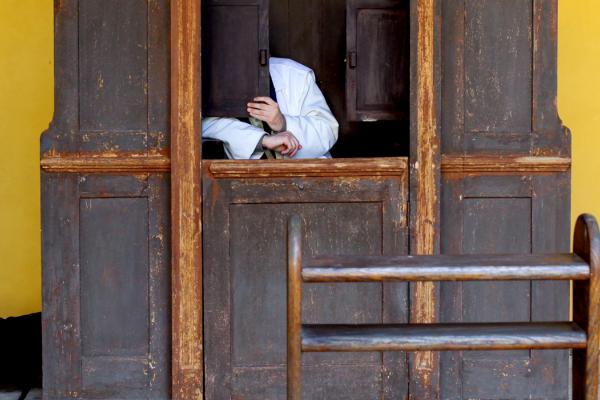THERE IS SOMETHING SPACIOUS about the gospel viewed through the keyhole of repentance. Something to the spare, Spartan spaces that mark a season of penitence. One chapel I know turns its altar so the people can see Jesus’ dying words: “I thirst.” Another adorns its sanctuary with a bare tree, not a leaf on it. The signs are those of severity. We make a hash of this world. We leave it bare. There is no health in us.
Lent says the tree will not always be bare. We will not always be health-less. And Jesus will not always thirst. Augustine of Hippo says Jesus thirsts for those gathered around him—he longs to drink them in, make them part of his body. That is, Jesus’ own murderers, the oblivious passers-by, his fellow convicts (his own disciples are long gone).
Lent is long. If you’re like me or my church, our Lenten devotions have grown a bit tepid by now. These final weeks are good times for renewal. The first weeks of Easter, in the ancient church, were a time when the newly baptized would gather daily to marvel at the wonders of their new faith. So too can we.
It’s been a year of strange happenings, politically and culturally. Our inclination is to lash out. There is plenty of blame to be distributed. Lent asks us to lash in. We are the first at fault, whoever we are. And then to praise. Try though we might, we cannot stop the Lord of life. And neither can anyone else.
Read the Full Article

